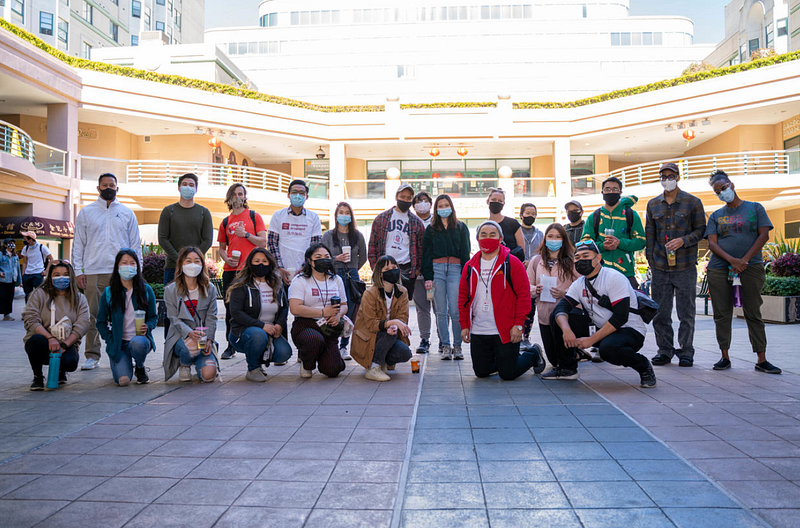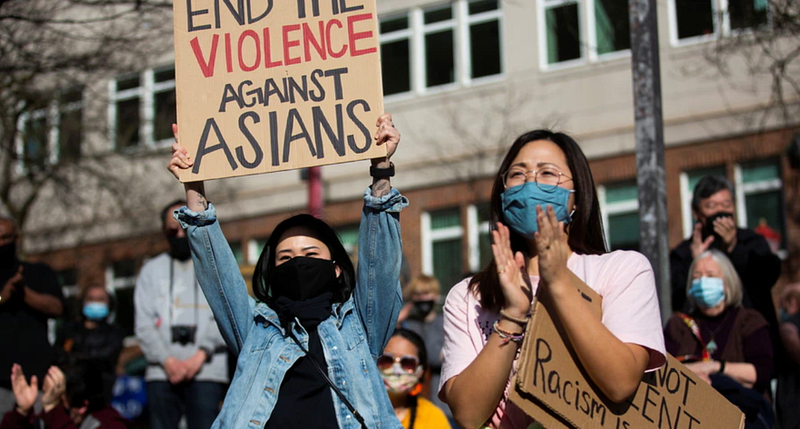Recognising Anti-Asian Hate Crimes
A significant rise in hate crimes towards Asians is evident, stirring mixed emotions of anger, sadness and an urgent need to advocate for…

A significant rise in hate crimes towards Asians is evident, stirring mixed emotions of anger, sadness and an urgent need to advocate for the bare minimum — basic human rights. With the Asian-American elderly and Asian students abroad being the main targets of these heinous crimes, this is a crucial time for fellow Asians to band together to rally in this hapless predicament against the cruel tide of racism.
Vivien Tsou, a director for the National Asian Pacific American Women’s Forum, made her stance clear regarding the cause of the anti-Asian violence.
“While the focus is on anti-Asian hate, it all stems from white supremacy and anyone can be a scapegoat at any moment.”
White supremacy. An ideology that reflects one’s morals and beliefs, and is thought to be one of the causes of the sudden surge of attacks against Asians. The philosophy that to be less than white — to lack colour in one’s skin — is also equalled to be less than human. The despicable philosophy that people of colour are seen to be less deserving of basic respect as compared to ‘normal’ (read: white) people. With that being said, white supremacy can take root within not only white people but other people of colour as well.
Despite that, something that can be unanimously agreed upon is that the same perilous consequences of white supremacy currently faced by the Asian-American community have also affected other minorities, such as Black and Native Americans.
White supremacy — an oxymoron in itself; an immoral moral that one has in believing they are superior, just because of the colour of their skin.
Another unreasonable justification for the increase in violence and harassment towards Asians would be the Covid-19 pandemic. Racially motivated attacks towards Asians have emerged mostly during the lockdown season. It could also explain the spike in negative attitudes towards Asian-Americans. This was made clear by Stop AAPI Hate, which tracked 3,795 anti-Asian hate incidents between March 2020 and February 2021, during the height of the pandemic. Some articulated that this was fuelled by Trump (former President of the United States), who publicly blamed China for the pandemic and repeatedly named it the ‘Chinese virus’.

Keep in mind that the large number of 3,795 only encapsulates America: there has also been significant growth in violence against Asians in Canada, Italy, Russia, Brazil, New Zealand and the U.K.
During these dangerous times, it is imperative that the elderly are paid more focus and attention. As attacks toward Asian-Americans increase, it seems as though the offending perpetrators lack compassion and do not intend to omit the elderly from their vicious agenda. With 61, 64 and 84-year-old Asians being violently attacked, fellow Chinese-American Jess Owyoung (along with others) has founded a campaign — Compassion in Oakland. This campaign aims to ultimately ensure the welfare of the elderly, such as accompanying them to do simple tasks: walking, going on jogs, getting groceries, and many more.

Jhina Alvarado-Morse had also ordered 200 whistles to distribute to elderly Asian-Americans, as well as providing instructions on calling for help during perilous situations. The tremendous efforts contributed by these 2 women show only a small proportion of the irate civilians who are determined to take action against these diabolic delinquents.
Of course, many might wonder: what is currently being done about this? Will the seemingly never-ending barbarity, so evidently fuelled by racism, go unnoticed? Fortunately, because of the soaring numbers of brutality against Asian-Americans and Pacific Islanders during the pandemic, a legislation was created.

The Covid-19 Hate Crimes Act acknowledges the racially motivated violence by providing grants such as access to law enforcement and local support services. The Act has been signed by Joe Biden — current President of the United States — as a visual representation recognising the uproar of anger and pain resulting from the violence inflicted on many communities.
Keen students excited to leave their home country for the first time to study abroad are now shying away from Western countries with their fear increased, and interest reduced. Take Malaysian students looking to study abroad as an example — amid violence against Asians, these few incidents have struck a frightful chord in many young hearts:
A Malaysian student and her Singaporean friend attacked in Australia: punched, kicked, and had abuse and death threats hurled at them (‘Coronavirus!’).
Famous Malaysian comedian Nigel Ng — more commonly known as his alias Uncle Roger — punched in London.
A 56-year-old Malaysian man was assaulted in a New York City subway; he was knocked over and punched repeatedly while walking home from work as a construction worker.
It is understandably difficult for students to feel safe in their skin while living overseas as these incidents have cemented their dread, resulting in a prominent fear and caution embedded within them.
Malaysians working abroad, such as Jiar, have voiced an opinion regarding the hate crimes targeted towards Asians.
‘I’ve just been feeling a lot of grief, anger, and sadness that this is happening to the Asian community in America. Personally, I’m more aware than usual of my surroundings.’
The Star, one of the leading newspaper brands in Malaysia, has also made it clear that there is a compelling need for Malaysians staying abroad to stay closer to get through this ordeal safely.
However, to be one step closer to completely eradicating racism is also to recognise it. Malaysia has a notable colourism problem. An example would be Haoren, a Malaysian entertainer who sparked heated backlash with his ‘White Doll’ music video. In the video, a pale girl who used a foundation that was way too dark for her skin to imitate brown, tanned skin was bullied by her classmates. The tanned skin was caused by her walking to school, and the harassment only stopped after she used a product whitening her skin tone.

This harmful depiction insinuates an idea that ‘white is beautiful’ and is heavily detrimental to people that have beautiful darker skin tones residing in Malaysia. They are unable to change their skin colour — how would watching a video about a girl lightening her skin so easily positively impact their self-image? (Spoiler alert: it doesn’t.) This might lead to younger, more impressionable teenagers trying dangerous products to whiten their skin just because colourists that bring their flawed ideals on social media find it ‘undesirable’.
The main, undiluted root of the increased attacks against Asians is racism. To ostracise and harm a person based solely on the colour of their skin is, without a flicker of doubt, a cowardly and immoral judgement for one to have. As for fellow Asians and allies, we must stand in solidarity to repel the forces that are trying desperately to tear apart a peaceful, close-knit community. And to echo Angela Davis’ words that seem to hold a voice stronger now than ever:
“In a racist society, it is not enough to be non-racist. We must be anti-racist.”
[Written by: Xin Jie Tiong]

